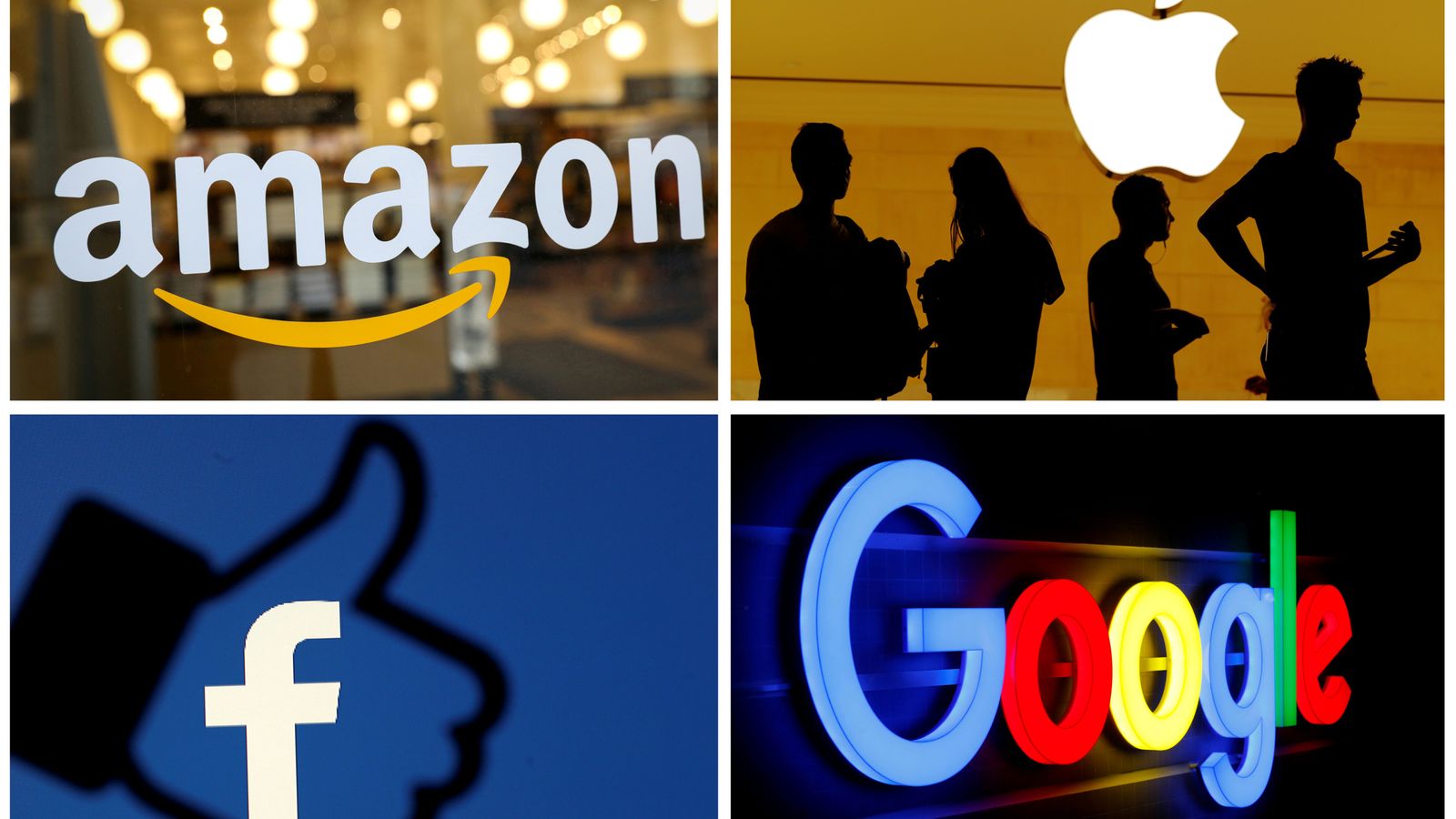Apple, Amazon, Meta and Google targeted by landmark EU law

Apple, Amazon, Meta and Google are among the technology giants whose global operations could be forced to change as a result of a landmark new law from the European Union.
The European Council and parliament announced the agreement on the Digital Markets Act (DMA) late on Thursday night, heralding a new era of enforcement against technology companies.
It comes amid President Biden’s visit to Brussels during which time the US and EU have agreed on measures to reduce Europe’s dependence on Russian energy and on data protection rights.
It targets so-called “gatekeeper” companies: businesses that have an annual turnover of at least €7.5 billion (£6.2bn) and at least 45 million monthly end users and 10,000 business users in the EU.
In a concession which has been reportedly welcomed by the US, the threshold for defining a gatekeeper has been kept low enough to include European as well as American companies.
The businesses covered by the DMA have been issued a declarative list of “dos and don’ts” to comply with.
Companies who violate the rules could be fined 10% of their global turnover for a first time offence, or 20% for any repeat offences, although the Commission can choose to keep fines as low as 1%.
In cases where an offender “systematically fails to comply”, defined as three violations within eight years, the law allows the European Commission to “impose behavioural or structural remedies”.
The DMA now needs to be formally approved by the European Parliament and the relevant ministers from member states.
It is expected to be approved within the next six months, concluding one of the most rapid acts of legislation the bloc has ever put together having only been proposed in December 2020.
How much power does this give the EU?
There are dozens of antitrust cases ongoing against the big technology giants across the world, although the most powerful jurisdictions are the US and the EU.
The EU’s largest ever competition fine was issued back in 2018, when Google was hit for €4.34bn (£3.8bn) for forcing phone makers to pre-install apps including Google Search and Chrome to the exclusion of other search engines and web browsers.
The company is still fighting that penalty, which was worth just over 3.7% of its global turnover in that year, but the real threat to the business was the impact on future income if smartphones landed in consumers’ hands without Google apps already installed.
Dwarfing this threat however are cases inside the US, where monopoly and competition laws allow the government to force companies to divest and restructure if they are deemed to be twisting the marketplace to suit themselves.
The DMA, by allowing the European Commission to impose structural remedies to gatekeepers who are found to violate the act three times in eight years, brings similar powers to the EU.
It will be solely enforced by the European Commission on a federal basis rather than by regulators in each member state, ensuring a “high degree of harmonisation in the internal market” according to the announcement.
How will this impact the tech giants?
The DMA sets out the European approach to several major competition controversies, but all revolve around how the largest technology companies operate their platforms, whether those are retail platforms like Amazon or the Apple App Store.
It will require that WhatsApp and iMessage share a basic level of interoperability, for instance, potentially by forcing WhatsApp to include the ability to send unencrypted SMS messages.
It would also require Apple to permit payment options outside of the App Store, something which the company had been involved in a series of protracted legal battles with Fortnite-maker Epic Games about.
A spokesperson for Apple said: “We remain concerned that some provisions of the DMA will create unnecessary privacy and security vulnerabilities for our users while others will prohibit us from charging for intellectual property in which we invest a great deal.
“We believe deeply in competition and in creating thriving competitive markets around the world, and we will continue to work with stakeholders throughout Europe in the hopes of mitigating these vulnerabilities,” they added.
A spokesperson for Amazon said the company was reviewing what the DMA meant for the company, its customers, and its partners.
Meta declined to comment.
Sky News has not received a response from Google.
For all the latest business News Click Here

